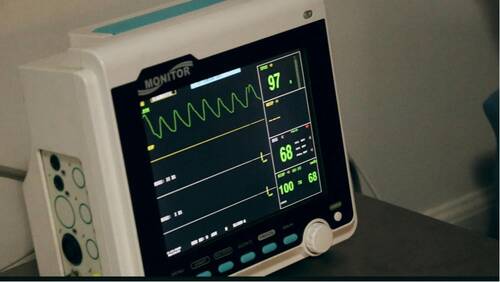Health Care Systems, Mental Health Research / 10.04.2025
Navigating the Mental Health System: The Essential Role of Psychiatric Health Facilities
Editor's note: This piece discusses mental health issues. If you have experienced suicidal thoughts or have lost someone to suicide and want to seek help, you can contact the Crisis Text Line by texting "START" to 741-741 or call the Suicide Prevention Lifeline at 800-273-8255.
 The mental health care landscape is a complex maze of services, providers, and treatment options that can be overwhelming for individuals and their loved ones. Psychiatric health facilities become vital lighthouses in this maze, providing critical care and support for those navigating mental health challenges. From acute care to long-term support, these facilities are designed to cater to the varying needs of patients. Understanding their function and how to access their services is a key step in commencing a journey toward mental wellness. Please keep reading to gain insights into the role of psychiatric health facilities and how to utilize them effectively.
The mental health care landscape is a complex maze of services, providers, and treatment options that can be overwhelming for individuals and their loved ones. Psychiatric health facilities become vital lighthouses in this maze, providing critical care and support for those navigating mental health challenges. From acute care to long-term support, these facilities are designed to cater to the varying needs of patients. Understanding their function and how to access their services is a key step in commencing a journey toward mental wellness. Please keep reading to gain insights into the role of psychiatric health facilities and how to utilize them effectively.
 Psychiatric health facilities serve several roles within the broader mental health system. These institutions offer a sanctuary for patients requiring medical attention, stability, and therapy for mental health disorders. Depending on the severity and nature of a patient's condition, they can provide both inpatient and outpatient services. Hospitalization might be necessary for those needing intense and immediate care, while others may benefit from the regular visits and treatments offered by outpatient clinics.
These facilities typically house a multidisciplinary team of health care professionals, including psychiatrists, psychologists, nurses, social workers, and therapists. This range of specialists ensures comprehensive care, tackling mental health from various angles. The facilities also offer a structured environment conducive to recovery, with scheduled therapy sessions, activities, and the opportunity for monitored medication management.
For individuals dealing with substance abuse, facilities like the Ocean View Recovery Center play a crucial role in providing tailored support. They not only address the psychiatric aspect but also the complex needs associated with addiction and recovery. These centers often integrate various therapeutic modalities to aid patients in overcoming substance dependencies while managing other mental health conditions.
In essence, psychiatric health facilities are designed to act as integral parts of a treatment plan, supporting patients through various stages of their mental health journey. From crisis intervention to ongoing care, these facilities provide the necessary resources for patients to achieve and maintain mental wellness.
(more…)
Psychiatric health facilities serve several roles within the broader mental health system. These institutions offer a sanctuary for patients requiring medical attention, stability, and therapy for mental health disorders. Depending on the severity and nature of a patient's condition, they can provide both inpatient and outpatient services. Hospitalization might be necessary for those needing intense and immediate care, while others may benefit from the regular visits and treatments offered by outpatient clinics.
These facilities typically house a multidisciplinary team of health care professionals, including psychiatrists, psychologists, nurses, social workers, and therapists. This range of specialists ensures comprehensive care, tackling mental health from various angles. The facilities also offer a structured environment conducive to recovery, with scheduled therapy sessions, activities, and the opportunity for monitored medication management.
For individuals dealing with substance abuse, facilities like the Ocean View Recovery Center play a crucial role in providing tailored support. They not only address the psychiatric aspect but also the complex needs associated with addiction and recovery. These centers often integrate various therapeutic modalities to aid patients in overcoming substance dependencies while managing other mental health conditions.
In essence, psychiatric health facilities are designed to act as integral parts of a treatment plan, supporting patients through various stages of their mental health journey. From crisis intervention to ongoing care, these facilities provide the necessary resources for patients to achieve and maintain mental wellness.
(more…)
 The mental health care landscape is a complex maze of services, providers, and treatment options that can be overwhelming for individuals and their loved ones. Psychiatric health facilities become vital lighthouses in this maze, providing critical care and support for those navigating mental health challenges. From acute care to long-term support, these facilities are designed to cater to the varying needs of patients. Understanding their function and how to access their services is a key step in commencing a journey toward mental wellness. Please keep reading to gain insights into the role of psychiatric health facilities and how to utilize them effectively.
The mental health care landscape is a complex maze of services, providers, and treatment options that can be overwhelming for individuals and their loved ones. Psychiatric health facilities become vital lighthouses in this maze, providing critical care and support for those navigating mental health challenges. From acute care to long-term support, these facilities are designed to cater to the varying needs of patients. Understanding their function and how to access their services is a key step in commencing a journey toward mental wellness. Please keep reading to gain insights into the role of psychiatric health facilities and how to utilize them effectively.
Understanding the Role of Psychiatric Health Facilities in Mental Health Care
 Psychiatric health facilities serve several roles within the broader mental health system. These institutions offer a sanctuary for patients requiring medical attention, stability, and therapy for mental health disorders. Depending on the severity and nature of a patient's condition, they can provide both inpatient and outpatient services. Hospitalization might be necessary for those needing intense and immediate care, while others may benefit from the regular visits and treatments offered by outpatient clinics.
These facilities typically house a multidisciplinary team of health care professionals, including psychiatrists, psychologists, nurses, social workers, and therapists. This range of specialists ensures comprehensive care, tackling mental health from various angles. The facilities also offer a structured environment conducive to recovery, with scheduled therapy sessions, activities, and the opportunity for monitored medication management.
For individuals dealing with substance abuse, facilities like the Ocean View Recovery Center play a crucial role in providing tailored support. They not only address the psychiatric aspect but also the complex needs associated with addiction and recovery. These centers often integrate various therapeutic modalities to aid patients in overcoming substance dependencies while managing other mental health conditions.
In essence, psychiatric health facilities are designed to act as integral parts of a treatment plan, supporting patients through various stages of their mental health journey. From crisis intervention to ongoing care, these facilities provide the necessary resources for patients to achieve and maintain mental wellness.
(more…)
Psychiatric health facilities serve several roles within the broader mental health system. These institutions offer a sanctuary for patients requiring medical attention, stability, and therapy for mental health disorders. Depending on the severity and nature of a patient's condition, they can provide both inpatient and outpatient services. Hospitalization might be necessary for those needing intense and immediate care, while others may benefit from the regular visits and treatments offered by outpatient clinics.
These facilities typically house a multidisciplinary team of health care professionals, including psychiatrists, psychologists, nurses, social workers, and therapists. This range of specialists ensures comprehensive care, tackling mental health from various angles. The facilities also offer a structured environment conducive to recovery, with scheduled therapy sessions, activities, and the opportunity for monitored medication management.
For individuals dealing with substance abuse, facilities like the Ocean View Recovery Center play a crucial role in providing tailored support. They not only address the psychiatric aspect but also the complex needs associated with addiction and recovery. These centers often integrate various therapeutic modalities to aid patients in overcoming substance dependencies while managing other mental health conditions.
In essence, psychiatric health facilities are designed to act as integral parts of a treatment plan, supporting patients through various stages of their mental health journey. From crisis intervention to ongoing care, these facilities provide the necessary resources for patients to achieve and maintain mental wellness.
(more…)



























 Effective RCM is particularly important in today’s changing healthcare environment, where reimbursement is a critical issue for hospital finances. Development in RCM staffing is vital in addressing the needs that modern health organizations face. This blog post will outline the following most recent trends and methods associated with RCM staffing and why these approaches can be used to improve the performances of healthcare institutions.
Effective RCM is particularly important in today’s changing healthcare environment, where reimbursement is a critical issue for hospital finances. Development in RCM staffing is vital in addressing the needs that modern health organizations face. This blog post will outline the following most recent trends and methods associated with RCM staffing and why these approaches can be used to improve the performances of healthcare institutions.

